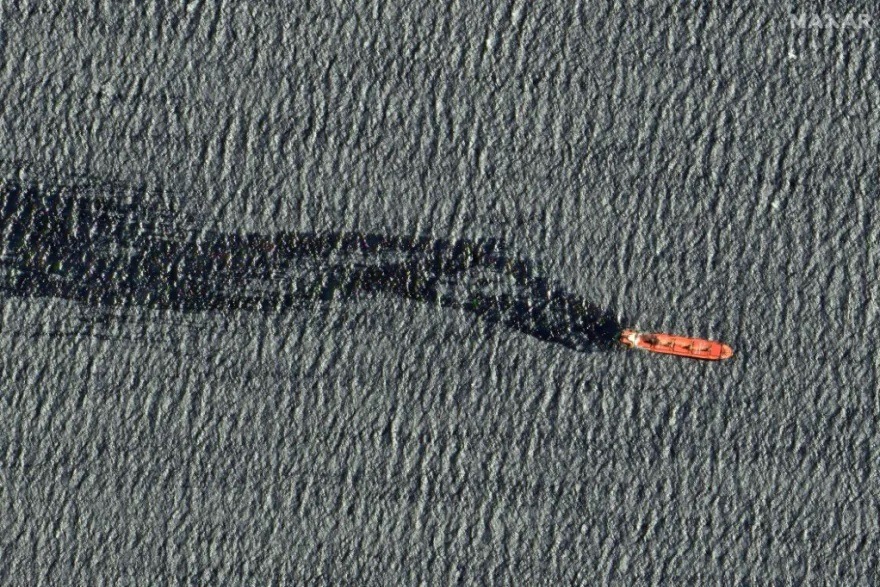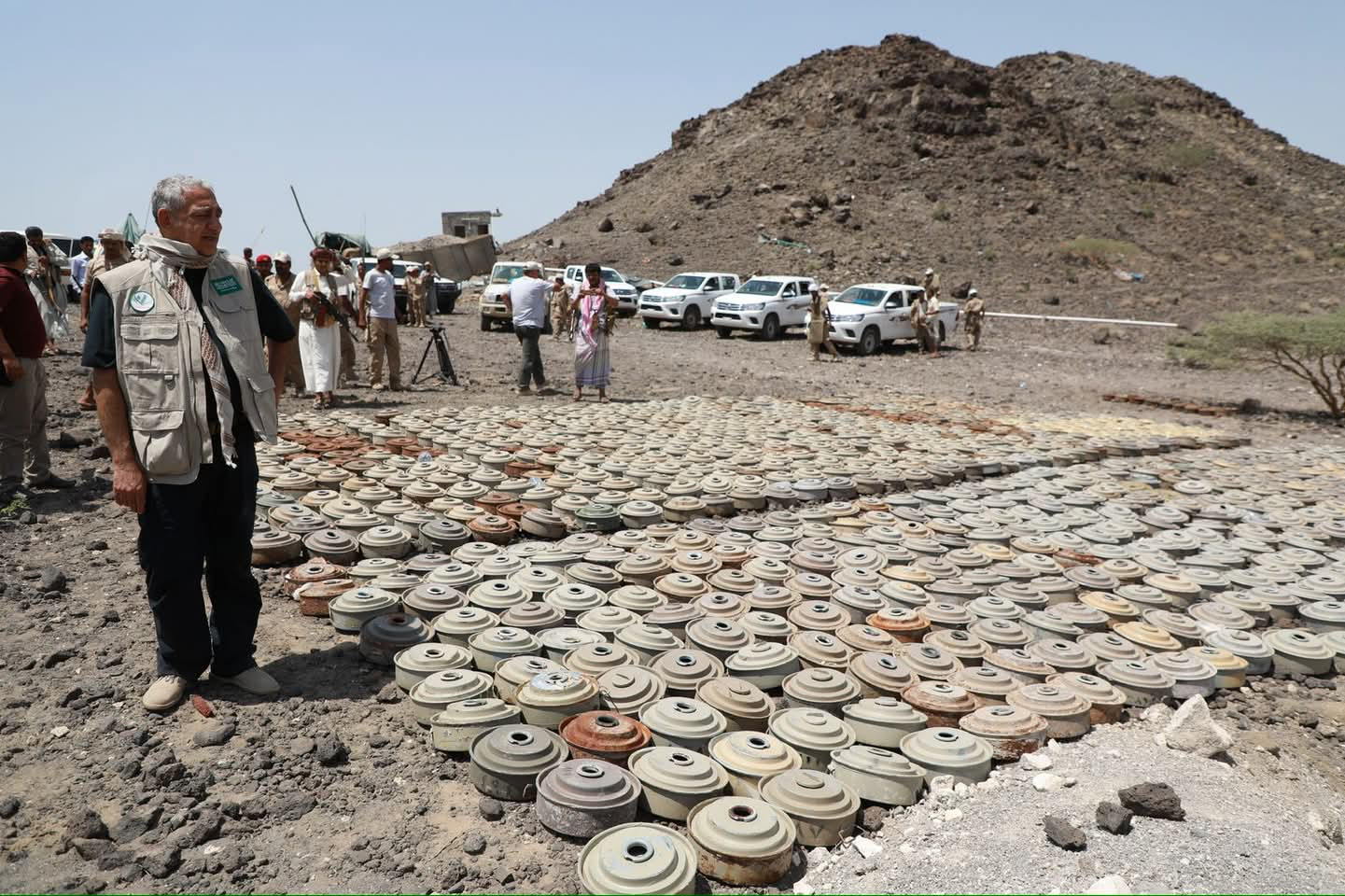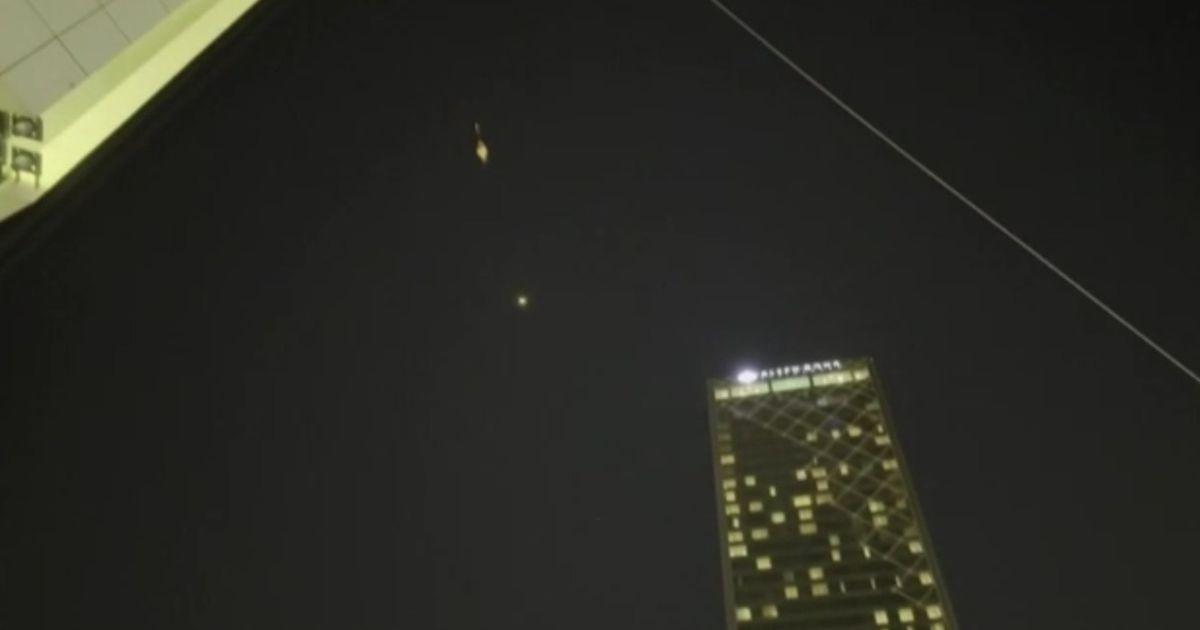
Barran Press
A 220-kilometer oil slick has been spotted in the Red Sea off the coast of Yemen, following a Houthi attack on an oil tanker on Monday, according to the UK-based Conflict and Environment Observatory.
The non-governmental organization, which monitors the environmental impact of conflicts, said satellite images taken by the European Space Agency showed the slick on Tuesday near the site of the attack on the "CHIOS Lion" tanker.
The observatory, in a post on X, monitored by "Barran Press", said the 220-kilometer slick indicates that the damaged ship is leaking oil.
The Liberian-flagged "CHIOS Lion" was attacked by the Houthi group, designated as a terrorist organization by the United Nations, 97 nautical miles northwest of the coastal city of Hodeidah in southwestern Yemen, according to the UK Maritime Trade Operations (UKMTO).
The UKMTO, which is run by the British Royal Navy, said on Monday that a drone boat "collided" with the ship, causing "minor damage."
According to the Conflict and Environment Observatory, the oil slick began appearing 106 nautical miles northwest of Hodeidah, a location that coincides with the site of the attack on the "CHIOS Lion."
The observatory published a photo showing what it said was an oil slick in the Red Sea near the Farasan Islands Marine Reserve off the coasts of Yemen and Saudi Arabia.
On Tuesday, the Combined Maritime Forces (CMF), a multinational naval force including the United States and European countries headquartered in Bahrain, announced that the "CHIOS Lion" was investigating a potential oil spill after the Houthi attack.
In March, a Houthi attack sank a Belize-flagged ship operated by a Lebanese company carrying 22,000 tons of ammonium phosphate fertilizer.
The incident raised concerns about the impact of the chemical and oil leak on coral reefs and marine life in the Red Sea.
Wim Zwijnenburg of the Dutch peacebuilding organization PAX said, "These continued attacks on numerous oil, chemical, and cargo tankers not only pose risks to maritime workers and shipping in general but also lead to serious deterioration of the Red Sea ecosystem."
He added in a statement to Agence France-Presse, "The current attacks pose an additional threat to the environment and coastal communities in Yemen."
Since last November, the Houthi group has continued its attacks with missiles and drones on commercial cargo ships in the Red Sea, the Arabian Sea, and the Gulf of Aden.
The attacks by the group, designated as a terrorist organization by the United Nations, have led to increased maritime insurance costs and prompted many international shipping companies to favor the much longer route around the southern tip of the African continent.
To deter the Houthis and protect maritime navigation, the United States formed a multinational coalition in December 2023. Meanwhile, US forces have been carrying out strikes against Houthi military targets.
Since January 12, the number of US and British airstrikes against the Houthis on the ground has reached about 560, resulting in the deaths of 58 and injuries to 86, according to the group's own admission.
The internationally recognized Yemeni government says Western strikes are not effective in neutralizing the Houthi threat to navigation and that the most effective solution is to support its armed forces to recapture Hodeidah and its ports, as well as other areas under Houthi control.





